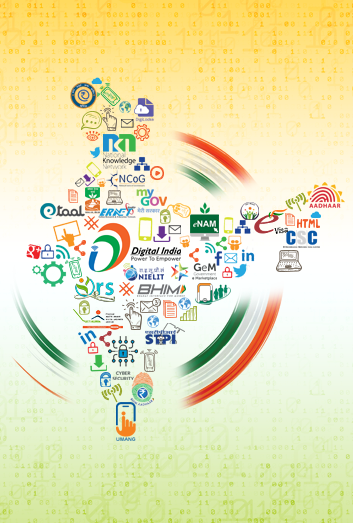World Bank’s G20 document lauds India’s progress In Digital Public Infrastructure
World Bank has lauded India’s progress over the past decade under the Prime Minister Narendra Modi’s government ahead of the G20 Summit being held in New Delhi. Document prepared by World Bank highlights the measures taken by the government and emphasises the pivotal role of government policy and regulation in shaping the digital public infrastructure (DPI) landscape in India.
The G20 Global Partnership for Financial Inclusion document prepared by World Bank has lauded transformative impact of DPIs in India. Lauding India’s DPI approach the World Bank document notes that India has achieved in just 6 years what would have taken about five decade.
Progress in financial inclusion
World Bank highlights India’s DPI approach that India has achieved in just 6 years what would have taken about five decades. JAM Trinity has propelled financial inclusion rate from 25% in 2008 to over 80% of adults in last 6 years, a journey shortened by up to 47 years thanks to DPIs.
The document underscores the pivotal role played by DPIs in this leap, emphasising the significance of ecosystem variables and policies that built on the availability of DPIs. This includes creating an enabling legal and regulatory framework, national policies to expand account ownership, and leveraging Aadhaar for identity verification.
The impact has been profound, with the number of Pradhan Mantri Jan-Dhan Yojan (PMJDY) accounts tripling since its launch, reaching an astounding 462 million by June 2022, of which 56 per cent are owned by women.
Government to Person (G2P) Payments
The doucment states that in the last decade, India has built one of the world’s largest digital G2P architectures leveraging DPI.
This approach has supported transfers amounting to about $361 billion directly to beneficiaries from 53 Central government ministries through 312 key schemes.
As of March 2022, this had resulted in a total savings of $33 billion, equivalent to nearly 1.14 percent of GDP.
Unified Payments Interface
The Unified Payments Interface (UPI) has also made significant strides, with more than 941 crore transactions valued at about Rs 14.89 lakh crore taking place in May 2023 alone. For the fiscal year 2022–23, the total value of UPI transactions accounted for nearly 50 per cent of India’s nominal GDP.
As per the document, DPIs in India have improved efficiency for private organisations by reducing the complexity, costs, and time required for business operations. Some non-banking financial companies (NBFCs) have reported an 8 per cent higher conversion rate in SME lending, a 65 per cent savings in depreciation costs, and a 66 per cent reduction in costs related to fraud detection.
Benefits of KYC
The document highlighted the lower cost of compliance for banks with Know Your Customer (KYC) procedures due to India Stack, which has digitised and simplified KYC procedures. Banks using e-KYC have reduced their cost of compliance from $0.12 (Rs 10) to $0.06 (Rs 5), making lower-income clients more attractive for service and generating profits for the development of new products.
Cross-Border Payments
The document states that the UPI-PayNow interlinking between India and Singapore, operationalised in February 2023, aligns perfectly with the G20’s financial inclusion priorities. It facilitates faster, cheaper, and more transparent cross-border payments, promoting global economic integration.
Account Aggregator (AA) Framework
India’s Account Aggregator (AA) Framework aims to strengthen India’s data infrastructure, enabling consumers and enterprises to share their data only with their consent through an electronic consent framework. The framework is regulated by RBI. Total of 1.13 billion cumulative accounts are enabled for data sharing, with 13.46 million cumulative number of consents raised in June 2023.
Data Empowerment and Protection Architecture (DEPA)
India’s DEPA empowers individuals to take control of their data, allowing them to share it across providers. This fosters tailored product and service access without requiring new entrants to invest heavily in pre-existing client relationships, ultimately promoting innovation and healthy competition.










